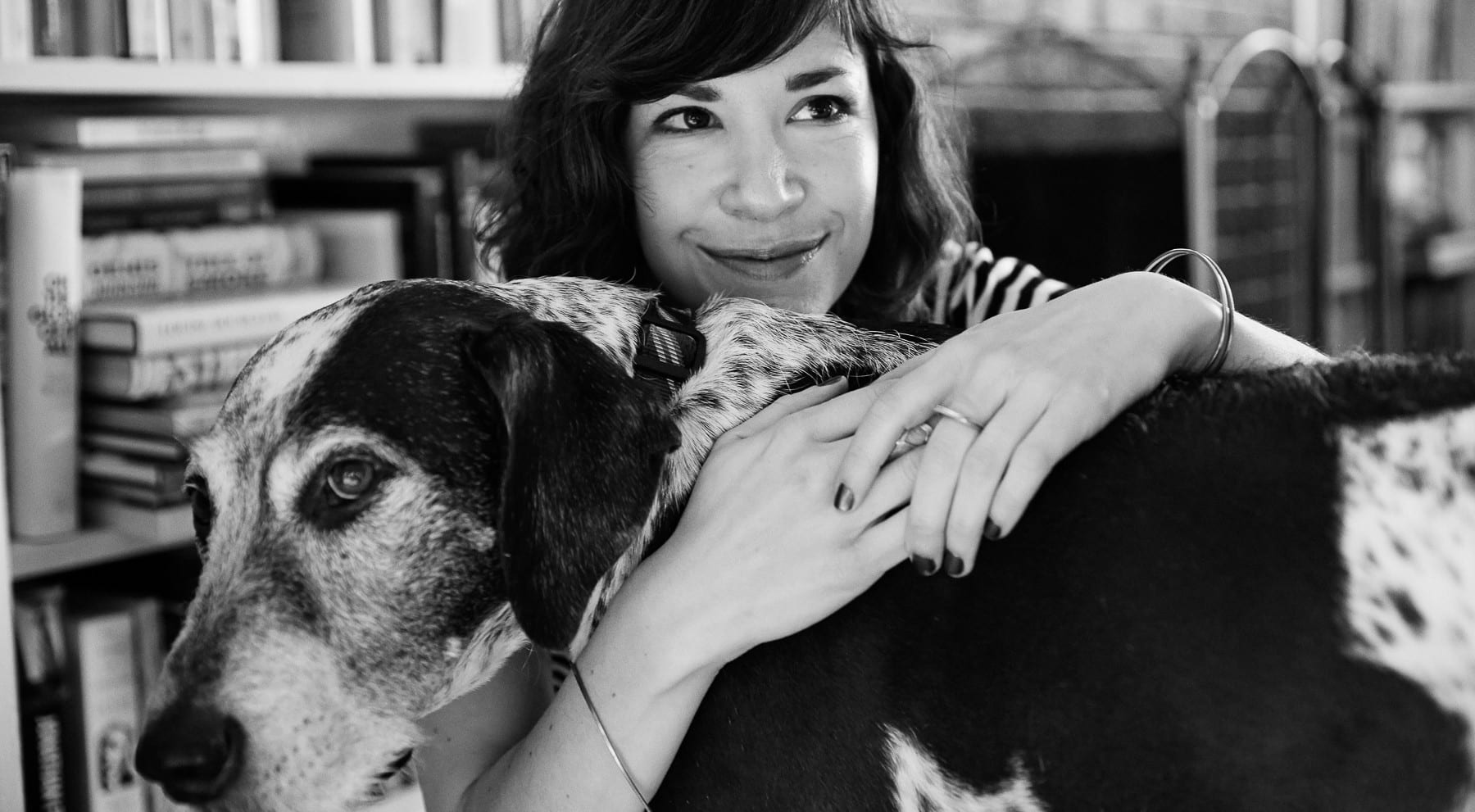Lightning struck more than once for Carrie Brownstein. The musician, writer, actress and comedian has built a legacy that includes riot grrrl punk band Sleater-Kinney and satire sketch-show Portlandia. Her latest project, a memoir titled Hunger Makes Me a Modern Girl charts her path from quirky kid to feminist rockstar.
It’s the last stop of her book tour and Carrie Brownstein sits on the wrong side of the stage. “I’ve done all my best book talks on this side,” she says. “If I sit over there, it’s a disaster.” As the staff shuffles around equipment at Toronto Reference Library’s Appel Salon, she doesn’t apologize. And that’s why everyone loves her.
Answering questions about her memoir Hunger Makes Me a Modern Girl, Brownstein manages to come across as polite yet glib: a rare combination that makes her fans feel like they’re all in on a joke. Interviewer Joanne Schneller begins: “What’s the difference between playing in a band versus being on a book tour?”
An interview with Brownstein plays out like a Portlandia sketch. She’s self-aware and self-referential as she explains how a 90’s feminist punk grew up to write a column for NPR and then star in an Emmy-nominated comedy.
Formed in 1994, Brownstein’s all-female band Sleater-Kinney played an essential role in the Pacific Northwest riot grrrl movement. In a review of their most recent album, No Cities to Love, Stereogum critic Tom Breihan wrote that Sleater-Kinney is “without question, the best rock band to come along in the past two decades.”
Mit Hunger Makes Me a Modern Girl, Brownstein tells her story with laser-eyed vision and big heart. “It’s a deliberate memoir. It’s not a diary. I didn’t bloodlet onto the page like a confessional. This is very artful. It’s very crafted. The stories are very curated and everything serves its purpose.”
Of her childhood, she tenderly writes about her mother’s severe eating disorder and her father’s mid-life realization that he’s gay. “There was a real vagueness to the family. Everyone was engaged in their own acts of denial, which I think is difficult for kids because you’re looking for something solid to grasp, and make sense of your own life, and you have people who are hiding from you in various ways.”

She made sense of her turbulent family life through performance. Rather than turning inward, she found structure in organizing neighborhood shows. “You take something that’s amorphous and anxiety-inducing because it feels boundaryless, and discover a formality in performance. I was the neighbourhood impresario.”
“Music simultaneously became an act of being present while also getting lost in the ineffability of it, in the mystery of it,” Brownstein continues. “The further you allow yourself to merge with something that’s collaborative, that allows you to effortlessly connect with other people, you’re both appearing and disappearing. It’s not even disappearing—it’s collapsing into something larger than yourself.” Her recent performance in the TV show Transparent, in addition to her smaller role in the movie Carol, is described as an extension of that feeling.
The only enemy of her creativity is procrastination. “I have couple of other jobs so I had to carve out time to write,” she said. “I think best in the morning so I would set my alarm for 4:30 a.m., make coffee and start writing. If I allowed myself one moment of distraction, I was in trouble. Procrastination starts noble. You’re like, ‘I’m going to read the newspaper so that I can be informed.’ Then you think, ‘I should check email and write people back immediately because that’s what efficient people do.’ Eventually you’re looking on face lotions on Amazon and that’s the day.”
“I really can’t write for more than five hours,” Brownstein admits. “I write until the ideas are terrible and I can feel it decaying. Otherwise, I’m afraid to stop in a good moment. Good ideas are so fleeting.”
Although Hunger Makes Me a Modern Girl stops before Portlandia, you can see the show’s premise bubbling underneath the surface. Brownstein spent her life navigating insular music and feminist communities that required esoteric conduct as a term for inclusion. “You’re trying to figure out all the rules and it’s like, nope! That’s wrong. You’re trying to do right by everyone but there’s a homogeneity to it that can be very stifling, creatively.”
The television show, which mocks Portland’s artisan hipster culture, can be a stand-in for other similar communities. “When we start to surround ourselves with the same people and realize Williamsburg is Silver Lake is Portland, artisan becomes the new Starbucks. You curate your life the way you curate your computer desktop. You filter out everything that you don’t agree with and go to restaurants that make you feel special because they have gluten-free pizza. Suddenly you’re like, ‘Is this better?’ I think the show has caught on because of the anxiety that maybe we’ve gone too far with this whole thing.”
When Sleater-Kinney went on hiatus in 2006 for the next eight years, Brownstein took on several office jobs including ad agency Wieden + Kennedy as part of an “existential crisis.” She was searching for structure, ritual and routine. In an interview with Off Camera she says that she was looking for a vessel to hold her, one that she didn’t have to create first.
It was that moment when she realized that her happiness couldn’t be dependent on an outside force. “I can try to assemble something that will hold me or I can just work on myself so that where I am, I feel held, I feel steady.”
As a person with multiple successful creative careers, Brownstein believes in reinvention. “Reinvention doesn’t have to be earth-shattering. Accepting yourself is a form of reinvention because you go through the world differently. You can look at yourself and like yourself. You don’t want to destroy yourself. When you start treating other people better, that’s reinvention.
You don’t have to go from being an astronaut to a movie star. I’d rather just wake up in the morning and think, ‘Yeah, alright, I’m ok with who I am and I’m going to treat myself well today and be nice to everyone.’ That’s plenty of reinvention for the average person, including myself. Generosity and graciousness, we could all benefit from a little more of that.”
You can order a copy of Hunger Makes Me a Modern Girl hier.
Header-Bild von Chris & Sarah Rhoads.













